The Ineffable Majesty of Laylatul Qadr: A Meeting Point of Divine Mercy, Revelation, and Eternal Decree
Laylatul Qadr, or the Night of Decree, holds immense significance in Islamic theology and spirituality. Explicitly alluded to in the Qur’an as “better than a thousand months”, this night marks the culmination of divine revelation, mercy, and predestination. It is a night of celestial splendour—when the heavens descend upon the earth, angels guard the terrestrial realm, and divine injunctions for the coming year are inscribed in unparalleled detail. This essay explores the theological, historical, and socio-spiritual dimensions of Laylatul Qadr and presents an exposition of its profound significance within Islamic tradition.
Qur’anic Foundations: Revelation and Cosmic Ordainment
The Qur’an refers to Laylatul Qadr directly in Surah Al-Qadr:
“Indeed, We sent the Qur’an down during the Night of Decree. And what can make you know what the Night of Decree is? The Night of Decree is better than a thousand months. The angels and the Spirit descend therein by permission of their Lord for every matter. Peace it is until the emergence of dawn.”
(Surah Al-Qadr, 97:1–5)
Allah highlights the unparalleled majesty of this night, underscoring its divine eminence. The term Qadr encompasses multiple meanings—measure, authority, and determination—aptly capturing the multifaceted nature of this sacred night.
Prominent Islamic exegetes such as Al-Zamakhsharī interpret the rhetorical style of the surah, particularly its interrogative tone—“What can make you know what the Night of Decree is?”—as a means to humble human understanding before divine wisdom (Al-Kashshāf).
The Qur’an was revealed in two stages: it was first sent down from the Preserved Tablet (al-Lawḥ al-Maḥfūẓ) to the lowest heaven (Bayt al-‘Izzah), and then gradually revealed to the Prophet Muhammad ﷺ over twenty-three years (Ibn ʿAbbās, Tafsīr al-Ṭabarī). This dual descent is further elucidated by Al-Bayḍāwī, who draws attention to both the divine origin of the Qur’an and its contextual relevance for humanity (Anwār al-Tanzīl).
Theological Dimensions: Destiny, Angels, and Sacred Time
The theological significance of Laylatul Qadr is intimately connected to the Islamic understanding of qadar (divine decree). Islamic theology—most succinctly represented by the Ashʿarī and Māturīdī schools—offers comprehensive frameworks regarding predestination.
Ashʿarism, following Abū al-Ḥasan al-Ashʿarī, emphasises the absolute power of Allah, asserting that all events are predestined. However, it still acknowledges human free will through the doctrine of kasb (acquisition). The Māturīdī school, while equally affirming divine foreknowledge, gives greater scope to human agency and initiative. Laylatul Qadr represents a unique moment of convergence between divine determination and human volition, urging believers to align their actions with divine wisdom.
The descent of angels—most notably the Archangel Jibrīl—is a recurring theme of this night. Al-Rāzī explains their arrival as an expression of divine grace, with the angels acting as agents of Allah’s blessings (Mafātīḥ al-Ghayb). The Qur’anic proclamation that the night is filled with peace—“Peace it is until the emergence of dawn” (Surah al-Qadr 97:5)—has been interpreted by scholars such as al-Suyūṭī to encompass personal tranquillity, social harmony, and even ecological balance. Ibn ʿArabī takes this further by linking Laylatul Qadr with his concept of al-Insān al-Kāmil (the Perfect Human), suggesting that the night signifies a moment of complete harmony between human existence and divine will (Fuṣūṣ al-Ḥikam).
Metaphysically, Laylatul Qadr transforms the nature of time itself. The Qur’anic comparison of a single night to “a thousand months” symbolises the convergence of linear temporality (dahr) with a sacred immediacy (waqt). Thinkers such as Ibn ʿArabī and al-Ghazālī reflect on this transcendence of time through the analogy of a divine economy, where finite deeds yield infinite rewards (Iḥyā’ ʿUlūm al-Dīn).
Prophetic Traditions: Ceremonial Practices and Spiritual Ascendancy
The Prophetic tradition identifies Laylatul Qadr within the last ten nights of Ramaḍān, particularly on the odd-numbered nights.
عَنْ عَائِشَةَ ـ رضي الله عنها ـ قَالَتْ كَانَ النَّبِيُّ ﷺ إِذَا دَخَلَ الْعَشْرُ شَدَّ مِئْزَرَهُ، وَأَحْيَا لَيْلَهُ، وَأَيْقَظَ أَهْلَهُ
Narrated ʿĀ’ishah (RA):
“With the start of the last ten days of Ramaḍān, the Prophet ﷺ used to tighten his waist belt (i.e., exert himself in worship), spend the night in prayer, and awaken his family for prayer.”
(Ṣaḥīḥ al-Bukhārī, 2024)
As this ḥadīth indicates, during these nights, the Prophet Muḥammad ﷺ observed iʿtikāf—a practice of spiritual seclusion characterised by withdrawal from worldly engagements to focus exclusively on worship. Al-Nawawī describes iʿtikāf as a means to attain spiritual independence, prioritising the relationship with Allah over worldly attachments (Sharḥ Ṣaḥīḥ Muslim).
Qiyām al-Layl, or night prayer, takes on profound significance on this night. The ḥadīth states:
عَنْ أَبِي هُرَيْرَةَ ـ رضي الله عنه ـ عَنِ النَّبِيِّ ﷺ قَالَ:
“مَنْ قَامَ لَيْلَةَ الْقَدْرِ إِيمَانًا وَاحْتِسَابًا، غُفِرَ لَهُ مَا تَقَدَّمَ مِنْ ذَنْبِهِ، وَمَنْ صَامَ رَمَضَانَ إِيمَانًا وَاحْتِسَابًا، غُفِرَ لَهُ مَا تَقَدَّمَ مِنْ ذَنْبِهِ”
“Whoever stands in prayer on Laylatul Qadr with faith and expectation (of reward), his past sins are forgiven. And whoever fasts during Ramaḍān with faith and expectation (of reward), his past sins are forgiven.”
(Ṣaḥīḥ al-Bukhārī, 1901)
This ḥadīth highlights the extraordinary redemptive power of night prayer on Laylatul Qadr.
The supplication taught by the Prophet ﷺ to ʿĀ’ishah (RA) for this night encapsulates divine mercy:
قُولِي: اللَّهُمَّ إِنَّكَ عَفُوٌّ كَرِيمٌ تُحِبُّ الْعَفْوَ فَاعْفُ عَنِّي
“O Allah, You are the Pardoner, Generous; You love to pardon—so pardon me.”
(Sunan al-Tirmidhī, 3513)
This duʿāʾ represents the essence of devout appeal on this night—a humble plea for divine pardon and grace.
The Hidden Date: The Wisdom of Concealment
The precise date of Laylatul Qadr remains concealed—a deliberate divine mystery meant to cultivate unwavering piety. Imām al-Ghazālī interprets this uncertainty as a test of sincere faith, compelling believers to approach the last ten nights of Ramaḍān with fervent spiritual devotion.
Certain signs mentioned in ḥadīth literature—such as a serene morning and mild weather conditions—serve as subtle indicators. Yet, Islamic scholars caution against over-reliance on these external signs, instead urging believers to focus on inner transformation and spiritual readiness.
Socio-Spiritual Consequences: From Worship to Social Justice
Laylatul Qadr is not merely a night of individual worship; it is a catalyst for communal revival and social responsibility.
عَنْ أَنَسٍ، قَالَ سُئِلَ النَّبِيُّ ﷺ أَىُّ الصَّوْمِ أَفْضَلُ بَعْدَ رَمَضَانَ؟ فَقَالَ: "شَعْبَانُ لِتَعْظِيمِ رَمَضَانَ". قِيلَ: فَأَىُّ الصَّدَقَةِ أَفْضَلُ؟ قَالَ: "صَدَقَةٌ فِي رَمَضَانَ"
Anas narrated that the Prophet ﷺ was asked, “Which fast is most virtuous after Ramaḍān?” He replied, “Shaʿbān, in honour of Ramaḍān.” He was then asked, “Which charity is best?” He ﷺ said, “Charity in Ramaḍān.”
(Jāmiʿ at-Tirmidhī, 663)
The Prophet’s ﷺ teachings underscore the importance of benevolent acts during Ramaḍān. Charitable giving, particularly during Laylatul Qadr, aligns with Islamic economic principles that prioritise social justice and equitable wealth distribution.
The observance of Laylatul Qadr by the global Muslim ummah reinforces transnational solidarity. Collective prayers held across Southeast Asia, the Middle East, and beyond exemplify the unifying spirit of Islamic devotion. In the post-pandemic era, digital interconnectivity has further magnified the communal experience, enabling believers worldwide to share in the sacred moments of this night.
Environmental stewardship is also a vital ethical dimension of Laylatul Qadr. The Qur’anic concept of khalīfah (stewardship) entrusts Muslims with the responsibility of caring for the earth as a trust from Allah. This night, marked by divine grace and reflection, offers an opportunity to renew this commitment to ecological balance and sustainability.
The Heart’s Transformation: Iḥsān and Spiritual Awakening
The ultimate benefit of Laylatul Qadr lies in iḥsān—the highest station of belief, defined as worshipping Allah as though one sees Him, and though one does not see Him, knowing that He sees them (Ṣaḥīḥ al-Bukhārī, 50). Sufi thinkers such as Rūmī liken Laylatul Qadr to a highly polished mirror that reflects divine light into the purified heart (Mathnawī).
Al-Ghazālī compares the soul’s purification on this sacred night to the emptying of a vessel, freeing it from worldly distractions and making it receptive to divine illumination (Mishkāt al-Anwār). This transformation signifies an inner awakening—where the heart, cleansed of excess and heedlessness, becomes a locus for divine presence.
Conclusion: A Lasting Agreement
Laylatul Qadr is a night of convergence between the divine and the human—when the mercy of the heavens meets the devotion of the earth. Its rituals and mysteries invite believers to transcend worldly temporality and embrace sacred timelessness.
Beyond personal devotion, this night carries moral imperatives: social justice, environmental stewardship, and communal solidarity. In a world fraught with division and distraction, Laylatul Qadr stands as a beacon of hope, calling humankind to seek its divine light—not only during the last nights of Ramaḍān but throughout the entire year.
References
- Qur’an: Surah Al-Qadr (97)
- Sahih al-Bukhari: Hadith 50, 1901, 2017, 2024
- Sunan al-Tirmidhi: Hadith 3513, 663
- Tafsir al-Tabari (Jami’ al-Bayan)
- Al-Kashshaf (Al-Zamakhshari)
- Al-Qurtubi, Al-Jami’ li-Ahkam al-Qur’an
- Al-Razi, Mafatih al-Ghayb
- Al-Ghazali, Ihya’ ‘Ulum al-Din, Mishkat al-Anwar
- Ibn Arabi, Fusus al-Hikam
- Rumi, Mathnawi
- Sharh Sahih Muslim
Disclaimer
The views expressed in this article are the author’s own and do not necessarily mirror Islamonweb’s editorial stance.

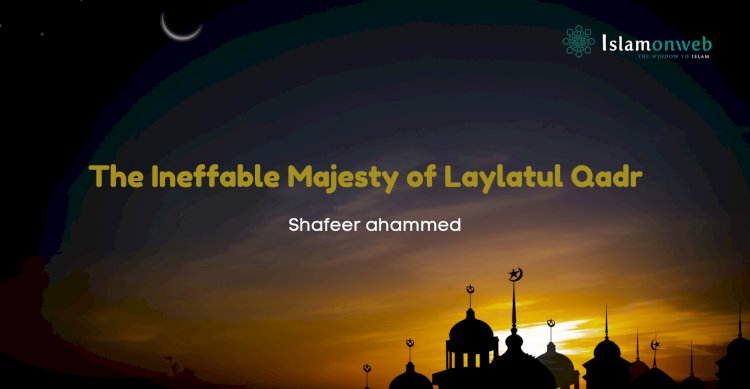


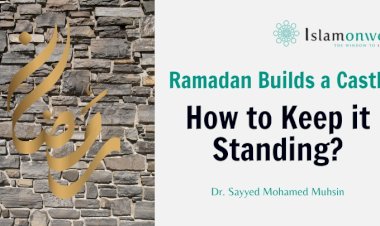

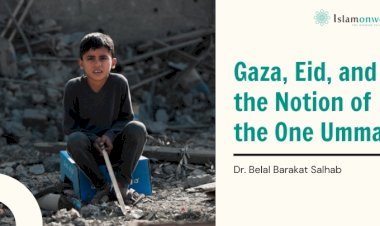
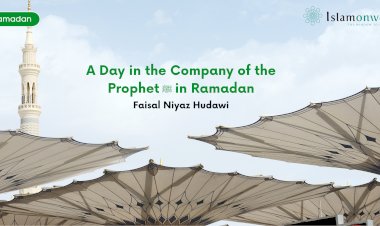
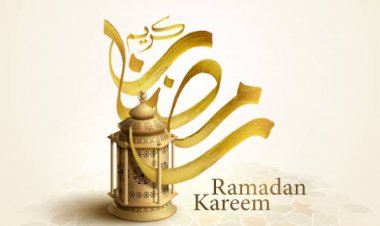
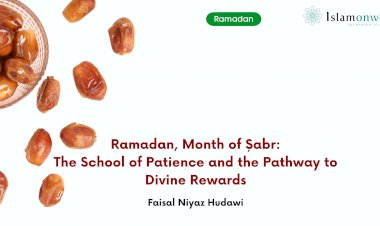














Leave A Comment